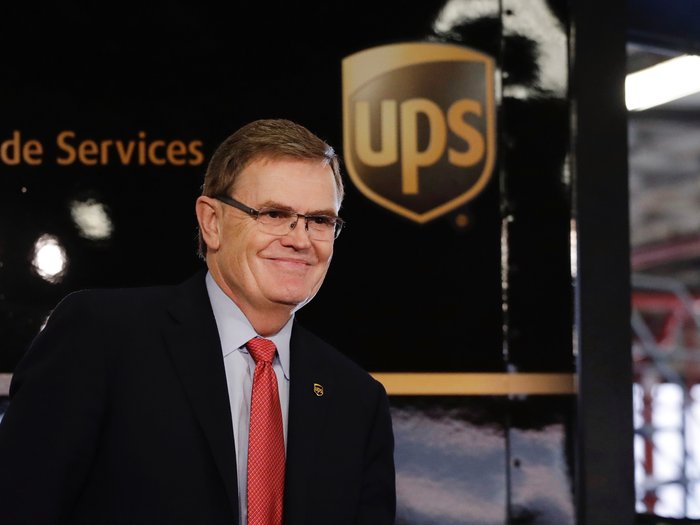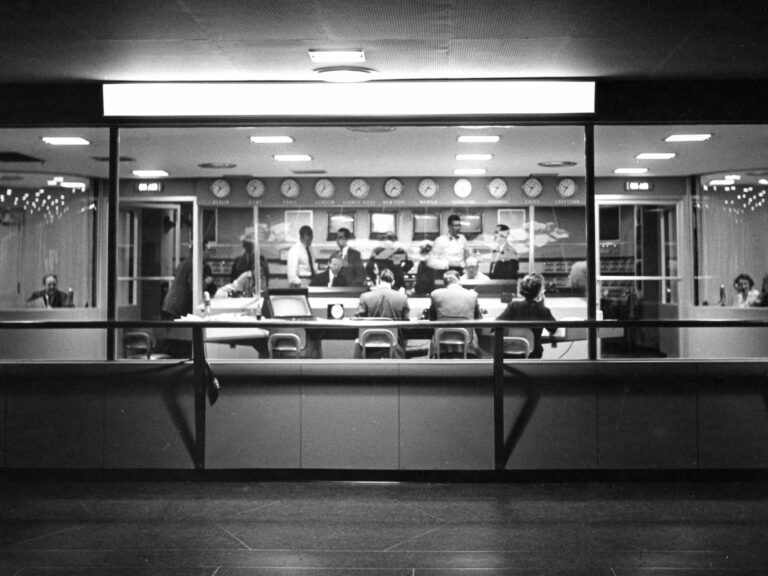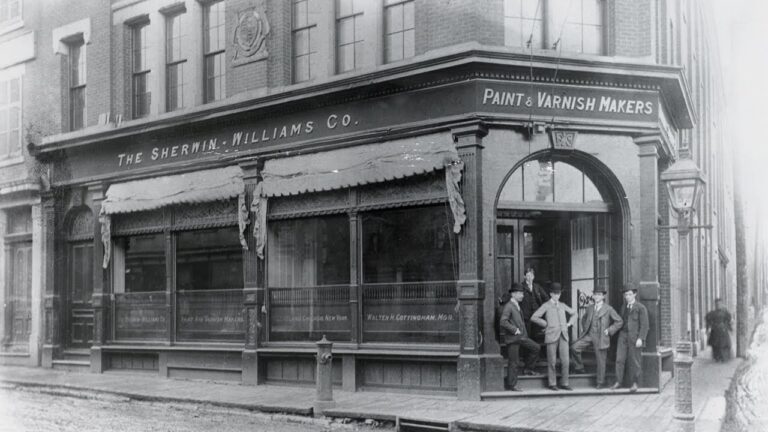Who Owns UPS? Unveiling the Ownership
When considering prominent international package delivery services, one crucial question tends to arise: who owns UPS? An exploration into the intricate world of shareholding and ownership might seem like a daunting task. Yet, understanding the ownership structure isn’t as complicated as it seems with the right information at hand.
Let’s delve deeper into the topic of who owns UPS, uncovering key shareholders and major elements of its ownership.
- Digging Deeper into UPS’s Ownership Structure: This involves the exploration of the composition of key shareholders and major players in the company.
- Who Owns UPS (NYSE:UPS) Stock?: The ownership of UPS stock is divided among various institutional and individual investors.
- Top 3 Institutional Shareholders of UPS: Highlights the major institutional players that have significant influence over UPS through their shareholdings.
- Ownership Structure of UPS: Describes how the stocks and ownership rights of UPS are distributed.
- Is UPS a Good Stock to Buy now?: Analyzes the current market trend and financial performance to determine the viability of investing in UPS stocks.
Informed decisions hinge on understanding topics like ‘who owns UPS?’ and getting familiar with its ownership structure.
Grasping UPS Ownership Structure
The precise distribution of UPS stock and ownership rights can provide essential insights into the company’s control, decision-making, and overall performance.
Institutional shareholders typically hold a substantial portion of UPS’s shares, implying they have meaningful influence over company decisions.
If you’re considering investing in UPS, understanding its ownership structure can be incredibly beneficial in your decision-making process.
The analysis of whether UPS is a good stock to buy now is hinged on market trends and the company’s financial performance.
Contents
Digging Deeper into UPS’s Ownership Structure

As an independent blogger seeking financial knowledge, understanding the ownership structure of a multinational corporation like UPS is crucial.
Controlled by a diversified group of shareholders, the UPS ownership structure is anything but simple.
- The Vanguard Group: One key player in the UPS ownership structure is The Vanguard Group. They hold 8.6% of UPS stocks.
- BlackRock, Inc.: Not far behind, BlackRock, Inc. controls 5.8% of shares, making it another dominant shareholder.
- State Street Corporation: Holding 3.8% of shares, State Street Corporation is another significant contributor to UPS’s ownership.
- The Capital Group Companies, Inc.: The Capital Group Companies, Inc., holding 3.4% of UPS shares, plays a vital role in the company’s dynamics too.
This information paints a picture of a company controlled by several prominent investment firms
You might want to learn more about these shareholders’ influence on UPS by reading this detailed piece.
The diversified nature of these key shareholders ensures the stability and longevity of UPS. However,
The distribution of ownership also implies potential volatility in company policies depending on any shift in shareholders’ stake.
Understanding these dynamics can aid in gaining a deeper insight into UPS’s functioning and its future prospects.
Who Owns UPS (NYSE:UPS) Stock?

Looking at the ownership of UPS stock, a significant proportion belongs to institutional investors. With this in mind, let’s delve into some noteworthy stakeholders.
The Vanguard Group
One of the top institutional holders is The Vanguard Group, owning approximately 8.1% of UPS stock.
Blackstone and State Street
Behind Vanguard are The Blackstone Group and State Street Corporation with stakes of 5.6% and 4.4%, respectively.
Significant Stakeholders
Other notable investors include Capital Research Global Investors and Capital World Investors, each holding more than 3% of UPS shares.
Coming next in line is Fidelity Management & Research Company, which owns about 2.9% of the shares.
Berkshire Hathaway and The Northern Trust Corporation maintain a substantial presence too, holding 2.8% and 2.1%, respectively.
FMR, LLC (Fidelity), T. Rowe Price Associates, and Capital International also have noteworthy investments in UPS, varying around 2%.
Some less significant, yet important institutional stakeholders include State Farm VP Management Corp., The Bank of New York Mellon Corporation, and Northern Cross, L.L.C.
Besides these institutional holdings, there are also certain insider holdings like Ward International LLC and The UPS Foundation that hold less than 0.5% of the shares each.
Broadening the scope further reveals mutual fund holdings with Vanguard Total Stock Market Index Fund leading by holding over 4%.
This is closely followed by other major funds such as Vanguard 500 Index Fund, BlackRock Equity Index Fund, and SPDR S&P 500 ETF Trust.
All in all, the ownership structure of UPS stock reveals a diverse array of stakeholders, from high-profile institutional investors to significant mutual fund holders.
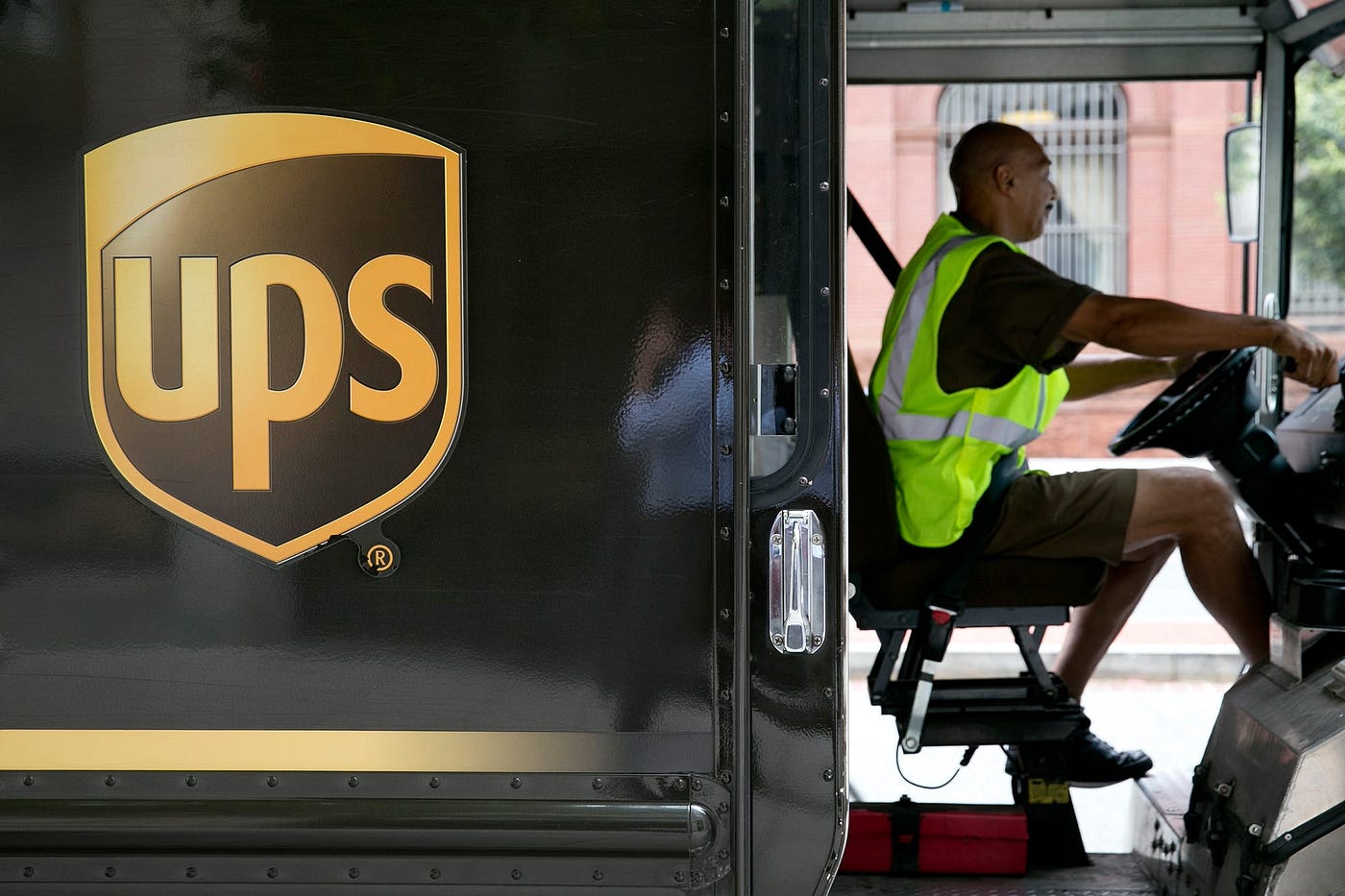
When you delve into the ownership of United Parcel Service, Inc. (UPS), specific names have prominence. These dominant players are institutional investors who hold substantial shares in the company.
Vanguard Group Inc.
At the forefront as the major shareholder is The Vanguard Group, Inc. They own an impressive 8.1% of UPS stock, demonstrating their significant investment in this global logistics giant.
BlackRock Inc.
Following closely is BlackRock, Inc., owning 5.8% of the company’s shares. Their stake manifests a strong confidence in UPS, with its solid market reputation and brand strength.
State Street Corporation
The third key player is State Street Corporation. They hold a considerable 4.1% share in UPS, further highlighting the major institutional influence within the company’s shareholder structure.
This information provides insight into UPS’s major stakeholders and their positions in the market. Note that these figures can change over time due to various factors such as changes in investment strategies or market moves.Source
So, if you find yourself curious about who truly owns UPS, remember it’s these institutional investors that lead the pack.

Many people often ask “Who owns United Parcel Service (UPS)?“
The broader answer is quite simple: UPS is publicly traded.
This means ownership of UPS spreads across countless individual and institutional shareholders.
- Vanguard Group: A prominent holder with over 54 million shares.
- BlackRock Inc.: This company takes the second position, owning approximately 37 million shares.
- State Street Corporation: They hold just over 18 million shares of UPS.
- Berkshire Hathaway Inc.: Although lower on the list, they’re a significant shareholder with over 4 million shares.
A mutual fund holder, Vanguard Total Stock Market Index Fund, holds a large number of UPS stocks too.
In addition to these, other entities also own a substantial amount of shares in UPS.
To conclude, it’s evident, no one entity solely owns UPS due to its public status.
Facts about the ownership of international companies like UPS are crucial pieces of information for potential investors and market analysts.
This content should help you better understand who owns this worldwide delivery giant.

When it comes to individual ownership of UPS shares, certain names stand out. Information indicates that Richard Peretz is a notable figure.
With a total of 544,124 shares, he owns approximately 0.07% of all outstanding shares. This significant percentage places him at the top.
- D. Scott Davis, former CEO, takes the second spot. His ownership amounts to 357,234 shares, representing about 0.04% of total shares.
- David P. Abney, another ex-CEO, follows close behind. He holds about 235,472 shares or roughly 0.03% of all outstanding shares.
These individuals have a considerable stake in UPS operations due to their shareholdings.
This data not only shines a light on UPS’s ownership structure but also provides insights into its inner workings and decision-making process.
A high level of individual ownership can signify strong internal belief in the company’s future prospects.
Conversely, it’s also important to explore any potential conflicts of interest that such concentrated ownership might pose.
Ownership Structure of UPS:
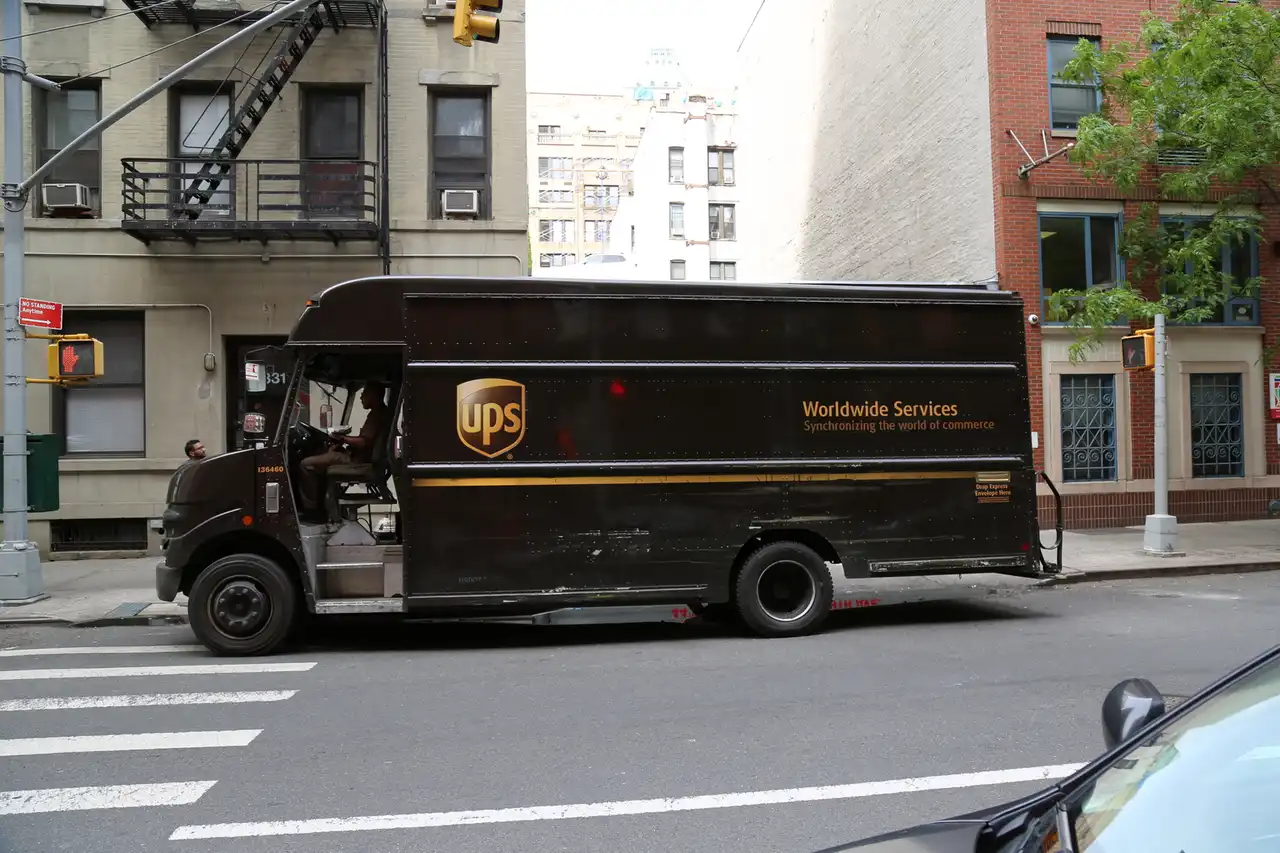
Digging into the structure,
You’ll find Institutions hold roughly 65.74% of UPS shares.
Among these, BlackRock Group comes first with a remarkable 10.18% stake.
Major Institutional Investors
The Vanguard Group, Inc. emerges as the second largest investor with 6.92%.
This is followed up by State Street Corporation at 3.87%, FMR, LLC at 2.29%
and Price (T.Rowe) Associates holding a solid 2.13% stake.
Middle Tier Institutional Stakeholders
The middle tier includes Capital Research Global Investors and Northern Trust Corporation
,
holding stakes at 1.96% and 0.85% respectively.
SSgA Funds Management and Geode Capital Management also fall within this category
,
with holdings of about 0.69% and 0.57% respectively.
Tail-End Institutional Players
The tail-end players include UBS Asset Management Americas Inc., Jennison Associates LLC,
Wellington Management Company,
Amundi, and AllianceBernstein LP.
All have holdings between 0.45% to 0.36%, contributing modestly to the overall institutional ownership picture.
This very informative data can be found in full detail in Part 2.
Is UPS a Good Stock to Buy now?

UPS, the world’s biggest package delivery firm, has hugely influenced international commerce. Despite a 23.01% drop in returns last year, it still has promising prospects.
Over the past five years, UPS has seen a 55.94% increase in returns, with an annualized rate of 9.29%. This outperforms several stock market averages.
“Since its IPO, UPS has enjoyed a rise of +278%, indicating appealing long-term growth.”
Despite recent wobbles, some analysts predict a resurgent second half in 2024 for UPS. In fact, one analyst foresees the stock reaching $142.
With some investors suggesting you should buy UPS while it’s below $140, it seems the future for this global titan is looking up.
If you’re seeking a steady source of passive income, investing in UPS could be a suitable option. Their robust dividend yield has caught the attention of many investors.
While nobody can predict the future with certainty, UPS’s track record makes it an attractive proposition for long-term investment.
More Related Articles

Explore the incredible world of A.I. and its promising future with “The A.I. Revolution: Your Next $100 Billion Opportunity”.
Unlock the potential of artificial intelligence in investments with “Unleash the Power of AI in Your Portfolio”.
Discover fascinating, new chances for gains in “The AI Frenzy Continues, New, Highly Profitable Opportunities”.
“AI’s Surprising Impact on Healthcare and Pharmaceuticals” reveals how AI is revolutionizing medicine.
- The Future of AI and Predictive Analytics: Learn how future trends could impact your decisions.
- Small-Cap AI Stocks Could Soar in 2023: Get the latest on fast-growing startups.
- AI and the Future of Predictive Analytics in Healthcare: Discover AI’s potential in diagnosing diseases.
- AI Advantage: Making Predictive Analytics Work for You: Tips to leverage data for success.
Dive into the relationship between technology and investment in “Unlocking the Secrets of AI and Machine Learning”.
“How AI Is Redefining the Healthcare Industry” presents an insightful guide into AI’s impact on wellness.
In “AI’s Surprising Impact on Our Daily Lives”, appreciate how deeply-embedded this technology has become in our lives.
The article titled “The Future of AI and Artificial General Intelligence” unveils exciting insights on what to expect from advanced A.I. systems.
UPS: Unmasking Ownership
Framed as a public entity, UPS is owned by an assortment of institutional and individual shareholders. This includes large investment corporations, mutual funds, and typical stock market participants. The largest shareholders are Vanguard Group and BlackRock, each owning a significant percentage of the company. Although no single entity holds majority control, these top shareholders greatly influence UPS’s operations.
